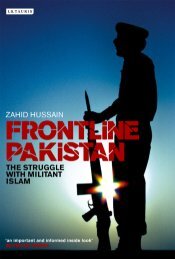Who Owns Pakistan - Yimg
Who Owns Pakistan - Yimg
Who Owns Pakistan - Yimg
Create successful ePaper yourself
Turn your PDF publications into a flip-book with our unique Google optimized e-Paper software.
perpetuated their control over the affairs of the companies, without being<br />
accountable to the shareholders.<br />
Lawrence White has illusttrated how the managing agency system was being<br />
used to hoodwink both the shareholders and income tax authorities.<br />
The Steel Corporation of <strong>Pakistan</strong> was one of listed companies controlled by the<br />
Fancy group and it was buying its input for steel making from <strong>Pakistan</strong><br />
Industaries limited, a wholly owned by Fancy subsidiary. The products of Steel<br />
Corporation were marketed through a selling agent, steel sales limited, another<br />
Fancy company.<br />
The management of Steel Corporation vested in the hands of managing agents,<br />
industrial management limited, agian another Fancy company. Thus through the<br />
operations of these companies, <strong>Pakistan</strong> Steel Corporation could distort the<br />
accounts anyway it desired.<br />
M A Rangoonwala who was the biggest manufacturer of vegetable ghee<br />
(Cooking oil) controled Libery-American Tank Terminal Company which had the<br />
monopoly of importing edible oil.<br />
Bhutoo's second bolt of nationalization came on Jan 1, 1974 when he decreed<br />
the nationalization of banks, life insurance, shipping and marketing of petroleum<br />
products. 13 banks, over a dozen insurance companies, two petroleum<br />
companies and 10 shipping companies were nationalized. Finance Minister, Dr.<br />
Mobashar Hasan declared at a press conference next day that banks have been<br />
nationalised because the wealth of the nation must be used for the benefit of the<br />
nation and can not be allowed to be concentrated in the banks of a few<br />
individuals.<br />
"Banks which till Monday were the private property of a group are<br />
now public property. All our big industries in the private sector were<br />
set up largely on the basis of financial accommodation provided by<br />
the banks and the financial institutions. Because of the previous<br />
governments obsessions with GNP growth, industrial power was<br />
concentrated in the hands of few robber barons." he said.<br />
Bhutto and his cabinet ministers were never apologetic about nationalization and<br />
strongly defended it in meetings with the <strong>Pakistan</strong> Federation of Chamber of<br />
Commerce and Industry (FPCCI) and at similar other forums. It was argued by<br />
them that the government was committed to end exploitation of labor class to<br />
improve their working conditions and break the concentration of wealth.<br />
On April 1, 1973 Bhutto told Lahore Chamber of Commerce and Industry (LCCI)<br />
that<br />
17













